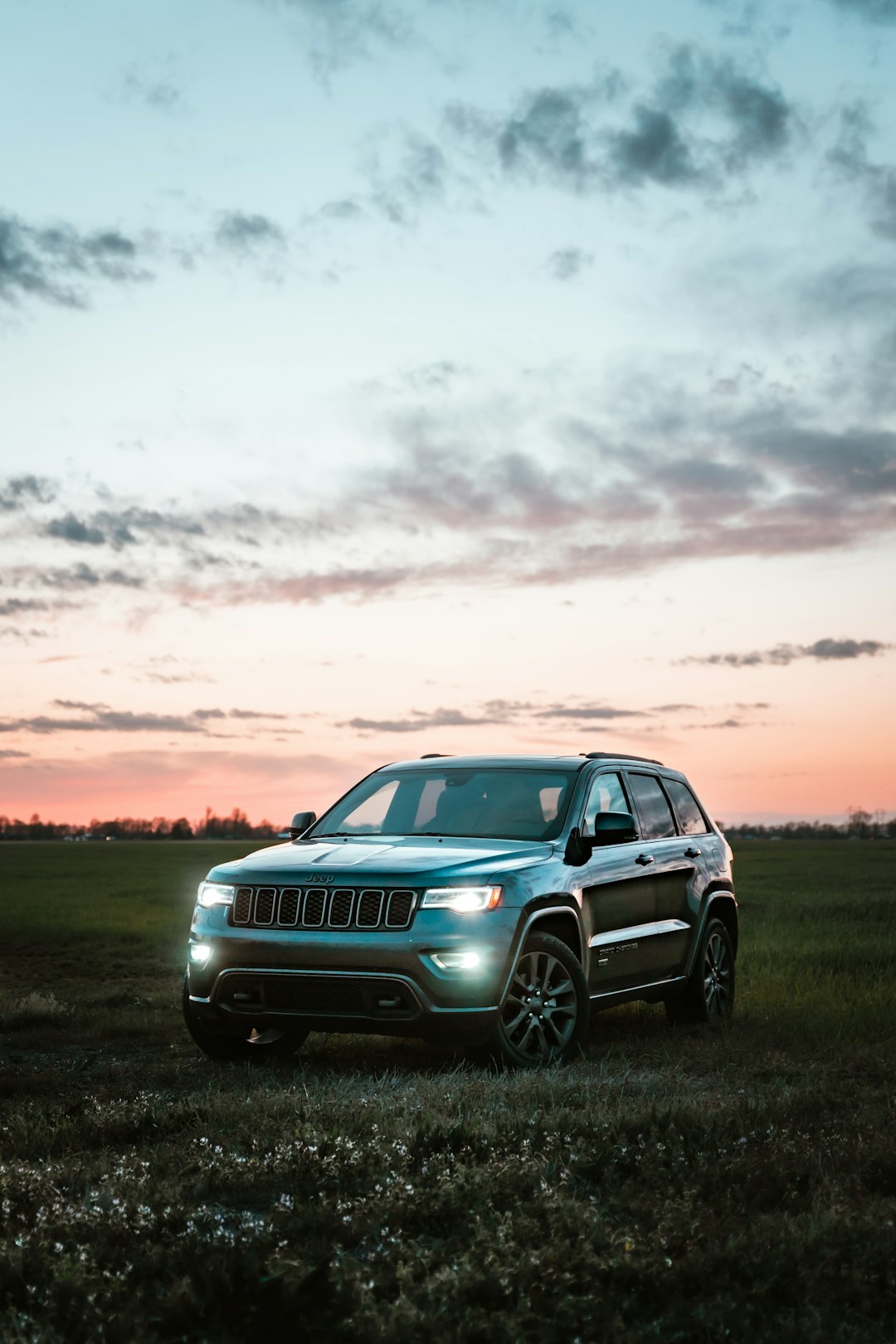 Photo from Unsplash
Photo from Unsplash
Originally Posted On: https://www.turnersvillejeep.com/why-wont-my-jeep-cherokee-start-reasons-and-solutions/
If your Jeep Cherokee doesn’t start, you may wonder, why won’t my jeep Cherokee start? There are many reasons why your Jeep might not start, but some are more common than others.
Also, suppose you’re thinking about purchasing a Jeep Cherokee or already have one. In that case, it’s essential to be aware of the common problems that can occur. That way, you can be prepared just in case you experience any issues with your Jeep.
This blog post will discuss the most common reasons why a Jeep Cherokee won’t start and offer solutions to help get you back on the road. So, read on to learn more!
Jeep Cherokee Features
The Jeep Cherokee is a popular SUV with several features that make it attractive to drivers. Some of these features include:
- All-wheel drive
- Plenty of cargo space
- Comfortable seating for up to five passengers
- A variety of engine options
Although the Jeep Cherokee is an excellent vehicle with many valuable features, remember to follow your Jeep’s recommended maintenance schedule to avoid any potential issues that could be avoided. With proper care, your Jeep Cherokee will provide you with years of faithful service.
Why Won’t My Jeep Cherokee Start?
So many jeep owners have been there before: You go to start your Jeep, and it just won’t turn over. Before you call a tow truck or take it to the nearest service station, let’s go over some of the most common reasons why your Jeep Cherokee might not start.
Here are your most common reasons:
Dead or Bad Battery
If you find that your Jeep Cherokee won’t start, and you think it may be due to a dead battery, you can do a few things to test this. First, try to jump-start the Jeep from another car. Then, if this doesn’t work, you can try hooking a battery charger to the Jeep’s battery.
If neither of these things works, it’s likely because the battery is dead and will require replacing. In this case, it’s best to take the Jeep to a mechanic or a dealership to have the vehicle repaired.
Loosened Terminals
Another common issue that can cause your Jeep Cherokee not to start is loose terminals. If the terminals are not properly tightened, they can become loose over time and cause a loss of power.
To fix this, tighten the terminals with a wrench. And be sure to check the terminals periodically to make sure they remain tight.
Bad Fuel Pump
If your Jeep isn’t starting and you suspect it may be due to a bad fuel pump, you can do some things to test this. First, check the fuel level in the tank. If it’s low, it’s possible that the fuel pump is not working correctly and needs replacing.
Another way to test a bad fuel pump is to listen for the sound of the pump when you turn the key to the “on” position. If you don’t hear the pump’s sound, it’s likely to need replacing.
Defective Alternator
If your Jeep Cherokee isn’t starting and you think it may be due to a defective alternator, do a few things to test this.
First, check the battery. The alternator is not charging the battery properly if it’s dead or dying.
Another way to analyze a defective alternator is to start the Jeep and then turn on all the lights, the radio, and other electrical accessories. If the Jeep stalls or the lights dim, it’s likely that the alternator is not working correctly and will need replacing.
Bad Spark Plugs
Another common reason why your Jeep Cherokee may not be starting is due to bad spark plugs. Over time, spark plugs can become fouled or damaged and require replacing.
A sure sign that your spark plugs need changing is if the Jeep is difficult to start or runs rough. If you suspect your spark plugs may be the problem, it’s best to take the Jeep to a mechanic or a dealership to get the work done.
Clogged Fuel Filter
Another common issue that can cause your Jeep Cherokee not to start is a clogged fuel line or filter. The fuel filter is responsible for filtering out impurities from the fuel, and over time it can become clogged with dirt and debris. If you suspect your fuel filter may be the problem, it’s best to have someone look to see if a fuel filter that’s clogged is the issue.
Rodent Damage
If you live in an area where rodents are common, they can be a problem for your vehicle. Rodents like to chew on wires and other parts of the jeep, which can lead to problems.
Don’t hesitate to take the jeep to a mechanic to inspect the jeep for rodent damage and make necessary repairs.
Engine Failure
Engine failure is one of the most serious reasons your Jeep Cherokee may not be starting. That can be due to several things, such as a blown head gasket or a cracked engine block. Let a specialist at the auto dealership or a trustworthy mechanic check this issue out.
Blown Fuses
Another common issue that may cause your Jeep Cherokee not to start is blown fuses. If any fuses in the Jeep are blown, it can cause starting problems.
The best way to test for blown fuses is to use a multimeter to test the continuity of the fuses. If any fuses are open, they need to be changed. Remember to check the fuses in the engine bay, under the dash, and in any other electrical circuits.
Lack of Gas
A lack of gas is one of the most obvious reasons why your Jeep Cherokee may not be starting. If the vehicle is out of gas, it won’t start.
So, be sure to check the fuel level before starting the Jeep. It’s also a good idea to keep a full tank of gas in the Jeep to avoid running into this problem.
Failing Starter
Another common reason your Jeep Cherokee may not be starting is a bad crank sensor. The crank sensor sends a signal to the computer when the engine is cranking. If it’s not working correctly, the Jeep won’t start.
One way to test for a bad crank sensor is to try to start the Jeep while someone else listens for the sound of the starter solenoid engaging. If the sound is faint or there is no sound, the crank sensor may be bad and need replacing.
Use OBD2 Scanner for Diagnosis
If you’re having trouble diagnosing the problem with your Jeep Cherokee, it’s a good idea to use an OBD2 scanner. OBD2 scanners can read codes stored in the Jeep’s computer, which can help you narrow down the problem.
Once you know what code is being stored, you can look up what it means and start troubleshooting from there. Most mechanics use these scanners to detect car issues before beginning repairs.
How to Read the Codes From the OBD2 Scanners
The first step is to find the DLC, located under the dash on the driver’s side. The second step is to locate the correct adapter for your scanner. Once you have the adapter, plug it into the DLC.
The third step is turning on the ignition but not starting the engine. Step four is to put the scanner in the “Scan” mode.
Step five is to press the “Read” button on the scanner. Next, move to the sixth step to write down the codes so you can look them up later.
The seventh step is to clear the codes from the scanner and the Jeep’s computer. Finally, the eighth step is to start the engine and see if the problem is still there. If the problem is still there, you’ll need to continue troubleshooting.
Narrow down what the issue is by troubleshooting the problem and getting it fixed quickly.
Is It Time For a New Jeep Cherokee?
So, what’s the answer to, “Why won’t my Jeep Cherokee start?” There are several reasons why your Jeep Cherokee may not be starting, but if you suspect it’s time for a new Jeep, ensure you’re getting the best deal.
Be sure to visit us at Turnersville Dodge Chrysler Jeep Ram in Turnersville, NJ, to test drive the latest models! We also offer a wide selection of other vehicles and can help you find the perfect one for your needs. Our team of representatives is ready to answer any questions or concerns you may have.
Contact us today to learn more!





